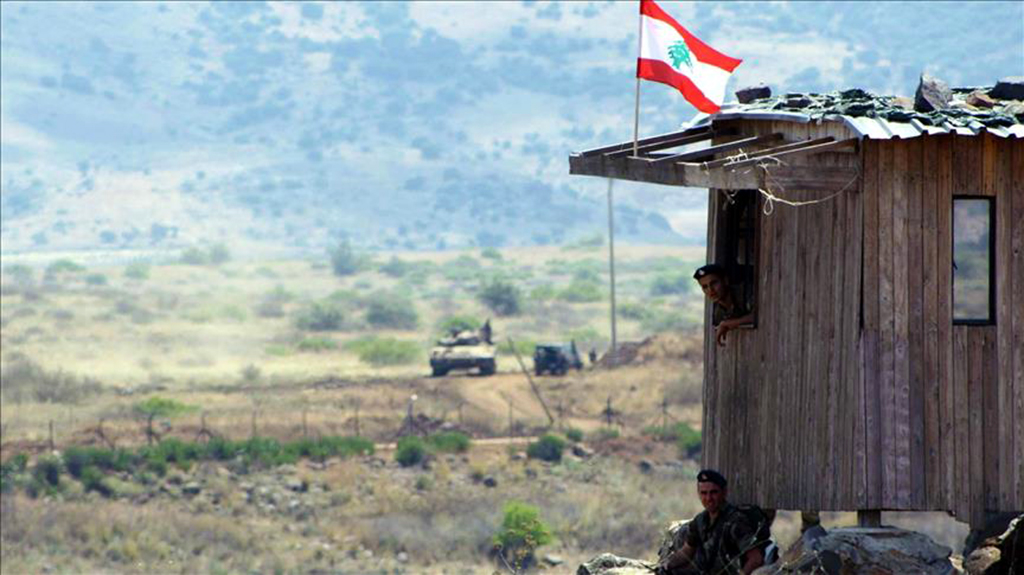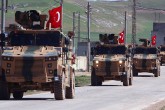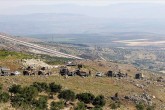This chaotic period, which intensified or started with the Arab Spring insurgencies, has been deepening every other day. All regional actors have been trying to exploit the power vacuum created in the wake of the Arab insurgencies. Almost all Arab regional powers, including Egypt, were destabilized. Unfortunately, today, there is no heavyweight actor or country capable of serving as a regional balance representing the Arab world. Saudi Arabia and the United Arab Emirates (UAE) have been trying to fill the gap; however, they do not have the potential to do so.
It seems that some regional actors intend to deepen the crisis and chaos in the Middle East. Accordingly, they have been following conflictual, and if and when they can unilateral, policies. They think that compared with the previous period, the cost of interventions in the Middle East is quite low. Therefore, they want to create fait accompli in the region. Regional powers such as Saudi Arabia and Iran want to keep violence and chaos away from their borders as much as possible. Today, there are three regional powers that follow an interventionist foreign policy. These are Iran, Saudi Arabia and Israel.
Iran has never given up its expansionist and interventionist regional policy. Especially after the revolution, it created effective proxies across the region and began to struggle against its challengers. Iran continues to fight with its adversaries outside its borders. It has opened fronts and created proxies in Yemen, Iraq, Syria and Lebanon. Iran successfully exploits sectarianism and uses the Popular Mobilization Forces (PMF) in Iraq, the Houthis (Ansarullah) in Yemen and Hezbollah in Lebanon. Many regional powers supported by the United States have been pressuring Iran to retreat from these fronts.
Saudi Arabia, which has remained as the only potential Arab regional power after the Arab insurgencies, has been trying to benefit from the power vacuum and has been presenting itself as a country representing the Arab world. Having some significant deficiencies, Riyadh has received support from the United States and Israel to control some parts of the region, to limit Iranian power, and to struggle against popular movements such as the Muslim Brotherhood. In this context, one of the main objectives of Saudi Arabia is to keep the Gulf immune from violence and war. Therefore, it prefers to have its wars away from its borders and away from the Gulf.
Israel, which has been following an interventionist and expansionist regional policy since its establishment, has been exploiting the regional atmosphere in its favor. Since there is no counterweight Arab country against the Israeli state; it also want to create some fait accompli situations which suit its interests. It persuaded the American government to transfer its embassy from Tel Aviv to Jerusalem and to recognize its occupation of the Golan Heights. Nowadays, it is attempting to get rid of Hezbollah and the Iranian threat on its borders.
After Hezbollah intervened in the Syrian crisis to support the Bashar Assad regime and sent some troops to Syria to fight against opposition groups, it lost regional support. Hezbollah was known as an effective actor which fought against Israel to defend the national integrity of Lebanon. However, nowadays, it is known more as one of the Iranian proxies fighting for the maximization of the Iranian policy.
At least, due to its role in the Syrian crisis, it has lost its support from the Arab streets. Therefore, the time is ripe for Israel to fight with the proxy of a vulnerable Iran.
If Israel initiates a large-scale military operation against Hezbollah, it may cause a regional conflict. Associates of Hezbollah such as Iran, Iraq and the Assad regime and supporters of Israel such as the U.S., Saudi Arabia and Egypt are watching the clashes in southern Lebanon closely. The crisis has many regional implications. The Iranian allies and proxies are long-time adversaries of the U.S., Israel and Saudi Arabia; similarly, the U.S., Israel and Saudi Arabia are strongly anti-Iranian. In the end, the performance of Hezbollah and the extent of Israel’s response will determine how other actors will react to the crisis. The deepening of this crisis will only bring more chaos and instability to the region, nothing else. It may trigger some other unexpected reactions and developments in some Arab countries which may change the regional balance. Another crisis will not bring any tranquility or stability to the Middle East.
[Daily Sabah, 4 September 2019]



